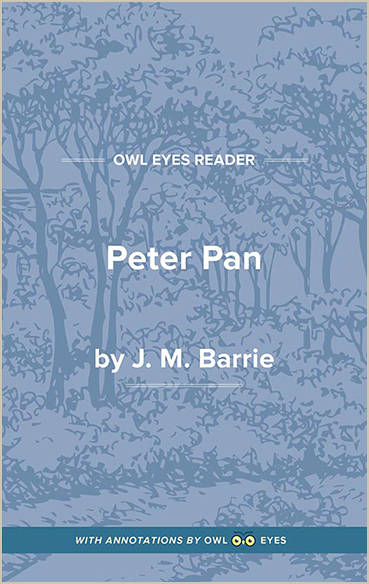Analysis Pages
Irony in Peter Pan
Irony Examples in Peter Pan:
Chapter 3 - Come Away, Come Away!
🔒"They are the children who fall out of their perambulators when the nurse is looking the other way..." See in text (Chapter 3 - Come Away, Come Away!)
"Wendy, I ran away the day I was born..." See in text (Chapter 3 - Come Away, Come Away!)
Chapter 6 - The Little House
🔒"I have brought at last a mother for you all..." See in text (Chapter 6 - The Little House)
Chapter 7 - The Home Under The Ground
🔒"This is a difficult question, because it is quite impossible to say how time does wear on in the Neverland, where it is calculated by moons and suns..." See in text (Chapter 7 - The Home Under The Ground)
Chapter 9 - The Never Bird
🔒"In fanciful stories people can talk to the birds freely, and I wish for the moment I could pretend that this were such a story..." See in text (Chapter 9 - The Never Bird)
Chapter 12 - The Children Are Carried Off
🔒"By all the unwritten laws of savage warfare it is always the redskin who attacks..." See in text (Chapter 12 - The Children Are Carried Off)
Chapter 14 - The Pirate Ship
🔒"Peter had been removed for ever from his path,..." See in text (Chapter 14 - The Pirate Ship)

